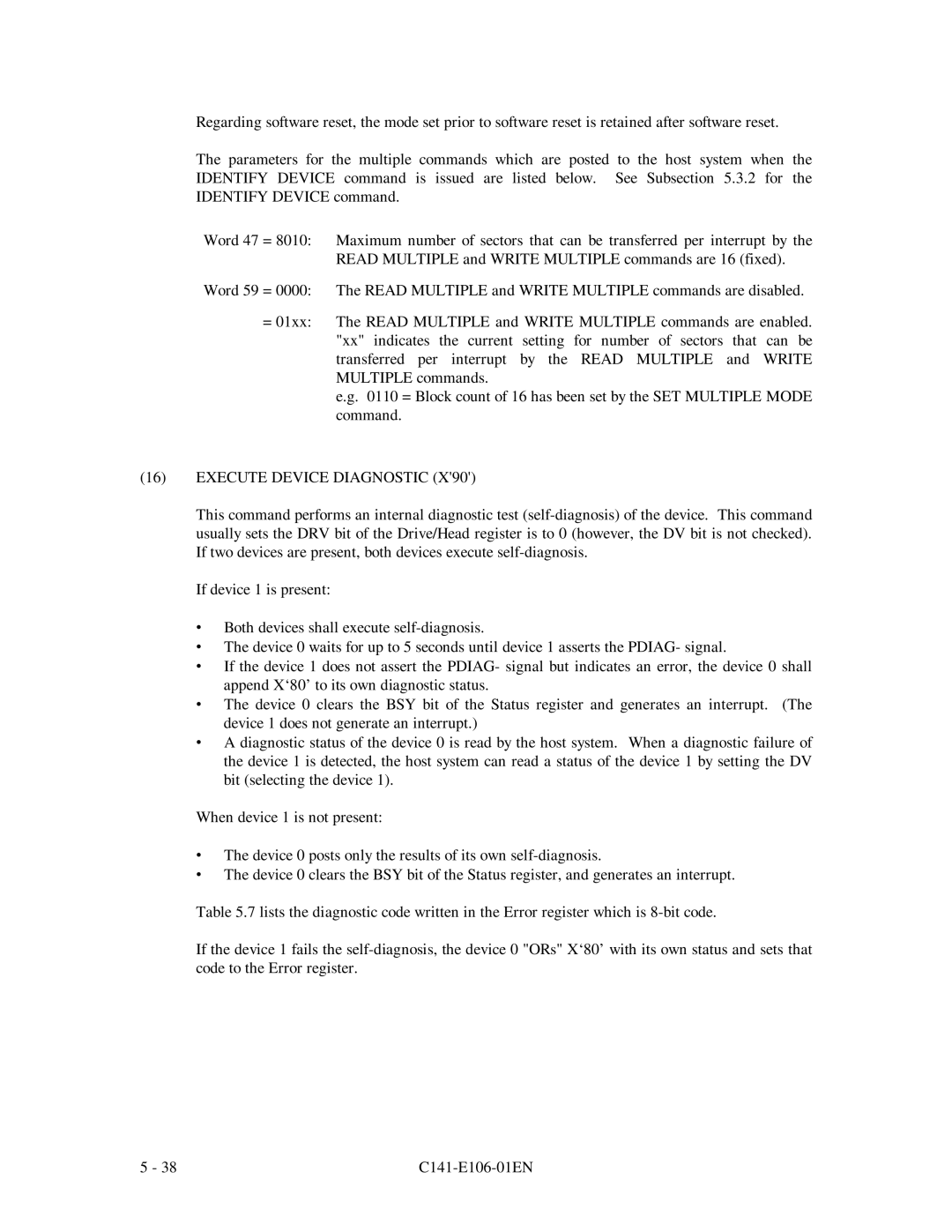Regarding software reset, the mode set prior to software reset is retained after software reset.
The parameters for the multiple commands which are posted to the host system when the IDENTIFY DEVICE command is issued are listed below. See Subsection 5.3.2 for the IDENTIFY DEVICE command.
Word 47 = 8010: Maximum number of sectors that can be transferred per interrupt by the READ MULTIPLE and WRITE MULTIPLE commands are 16 (fixed).
Word 59 = 0000: The READ MULTIPLE and WRITE MULTIPLE commands are disabled.
=01xx: The READ MULTIPLE and WRITE MULTIPLE commands are enabled. "xx" indicates the current setting for number of sectors that can be transferred per interrupt by the READ MULTIPLE and WRITE MULTIPLE commands.
e.g. 0110 = Block count of 16 has been set by the SET MULTIPLE MODE command.
(16)EXECUTE DEVICE DIAGNOSTIC (X'90')
This command performs an internal diagnostic test
If device 1 is present:
∙Both devices shall execute
∙The device 0 waits for up to 5 seconds until device 1 asserts the PDIAG- signal.
∙If the device 1 does not assert the PDIAG- signal but indicates an error, the device 0 shall append X‘80’ to its own diagnostic status.
∙The device 0 clears the BSY bit of the Status register and generates an interrupt. (The device 1 does not generate an interrupt.)
∙A diagnostic status of the device 0 is read by the host system. When a diagnostic failure of the device 1 is detected, the host system can read a status of the device 1 by setting the DV bit (selecting the device 1).
When device 1 is not present:
∙The device 0 posts only the results of its own
∙The device 0 clears the BSY bit of the Status register, and generates an interrupt.
Table 5.7 lists the diagnostic code written in the Error register which is
If the device 1 fails the
5 - 38 |
